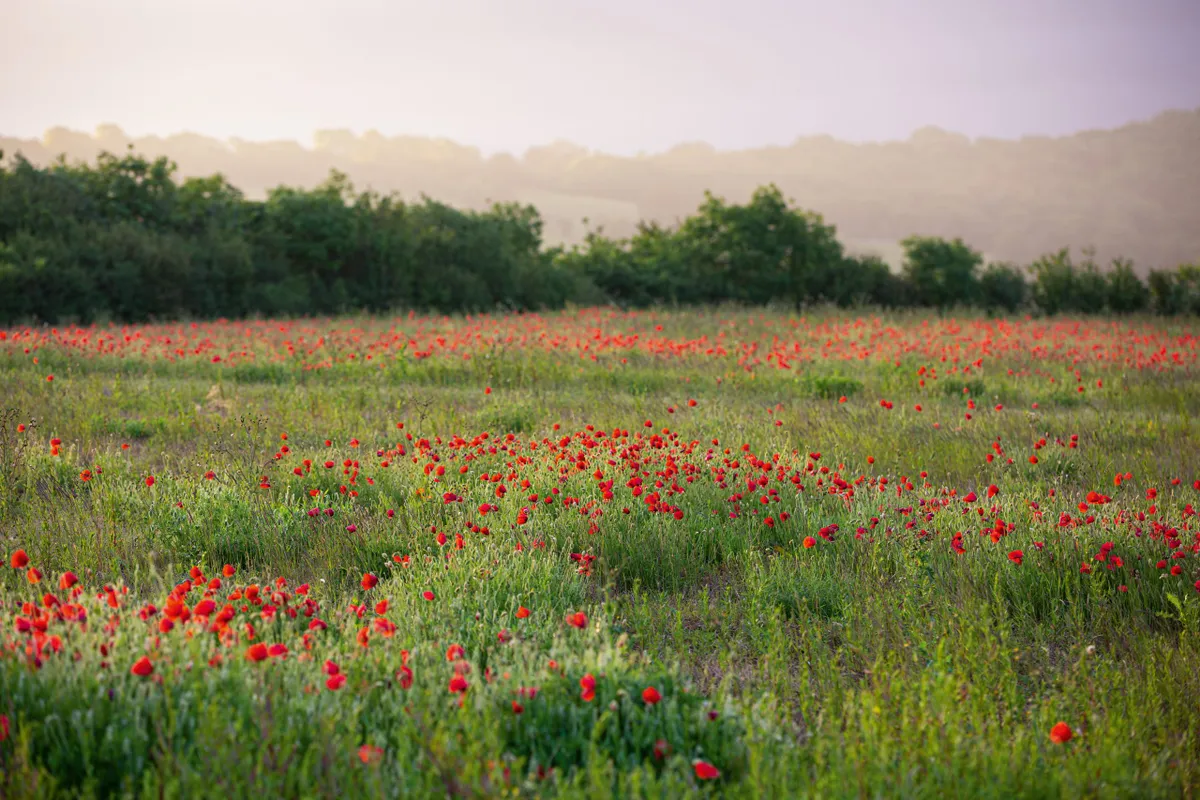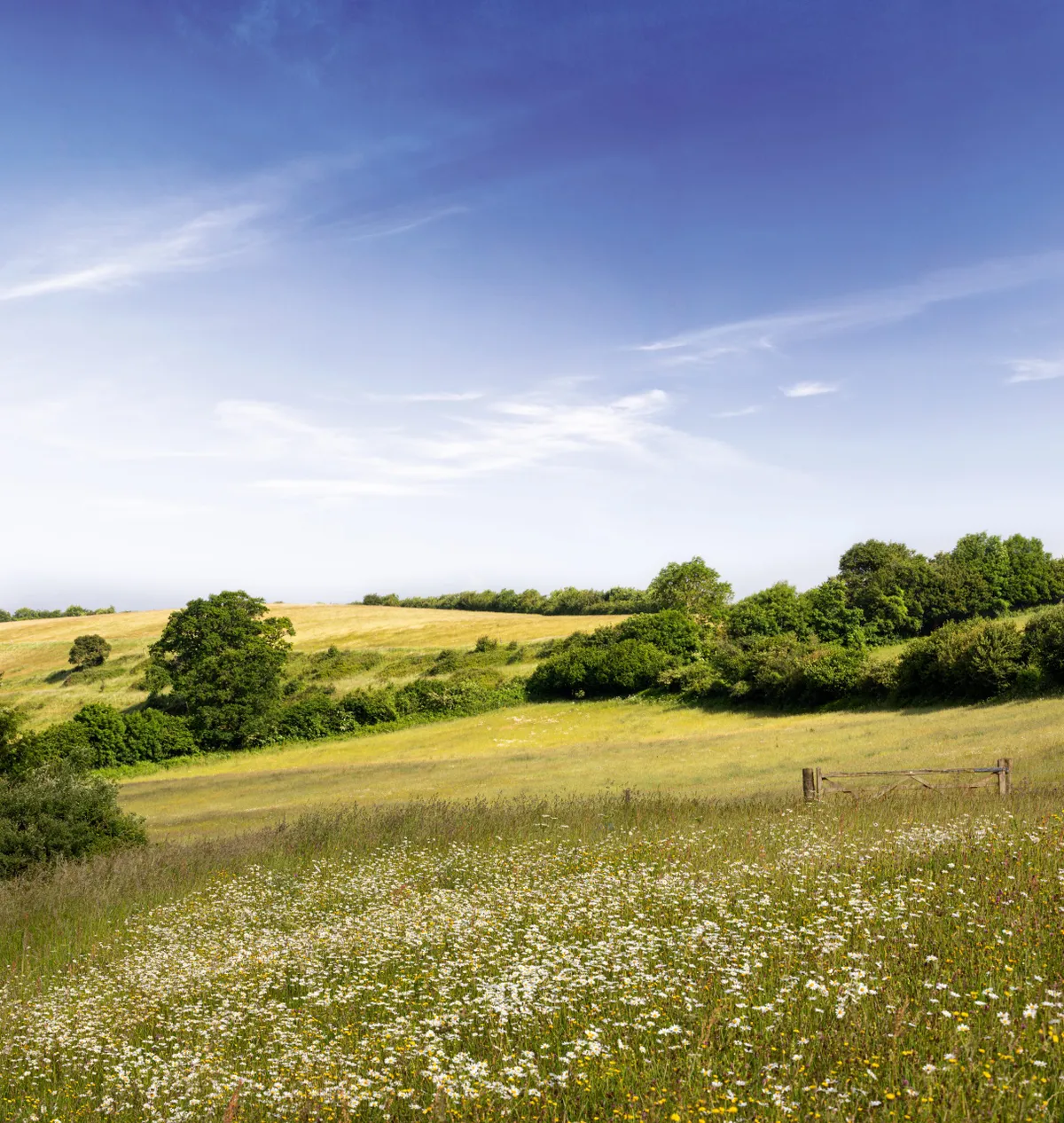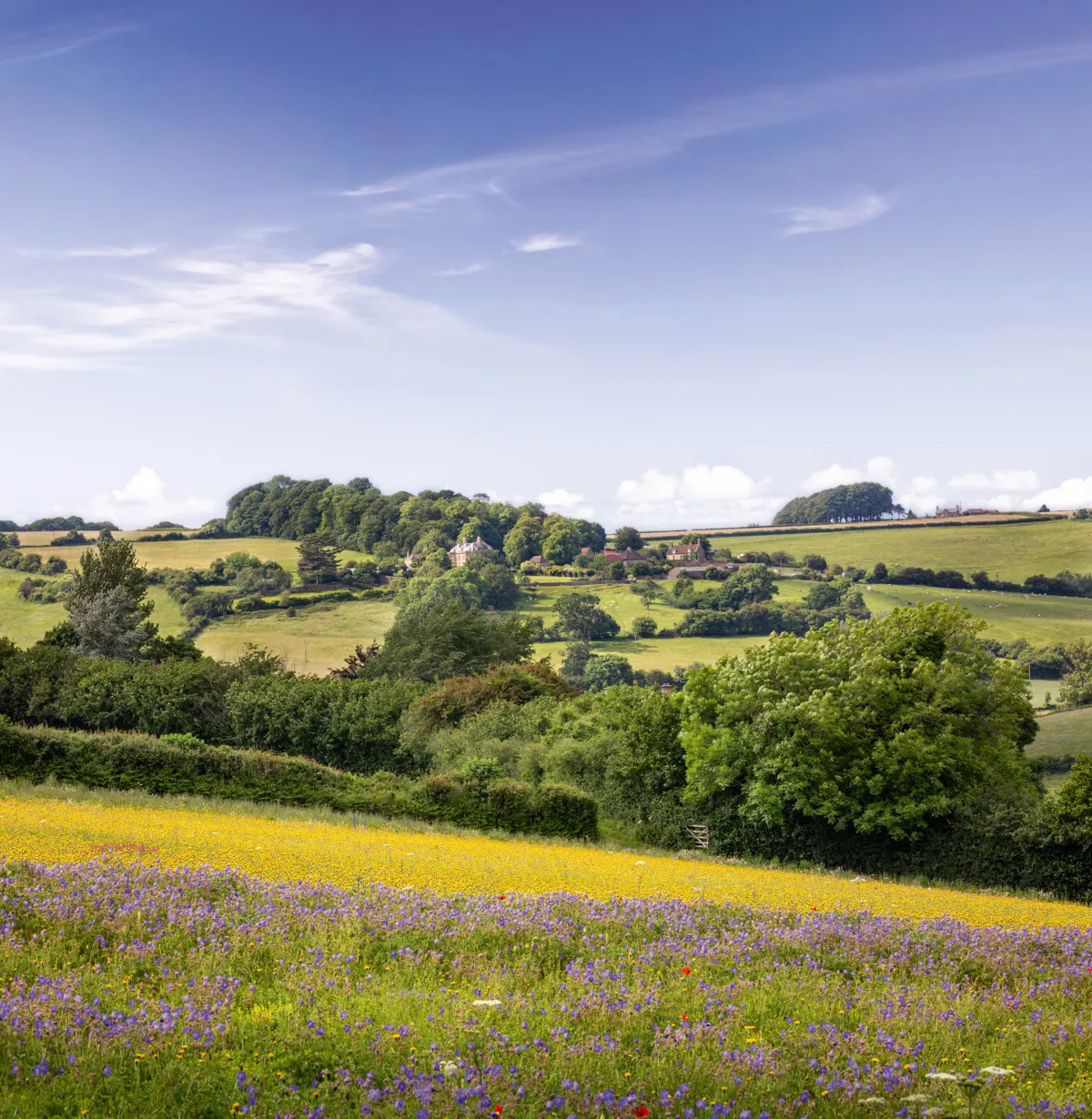Throughout the summer months a vivid kaleidoscopic patchwork of crops lines the northern flanks of a steep, narrow valley to the north of Bath. This is an unusual working farm grazed by cattle, sheep, and a roaming herd of sedate Shire horses. A mini combine harvester and a bespoke brush harvester parked up in the orchard, its meadow thick with orchids, confirms this as Manor Farm, the West Country hub for Emorsgate Seeds.
How to identify wildflowers and 16 key plants from Emorsgate
The Countryside Survey, which has been published at regular intervals since 1978, is an audit of the natural resources of our ordinary countryside and throws up some alarming indications of rapid loss of biodiversity. In arable landscapes the rapid shift towards unsustainable intensive farming has decimated native hedges. Soils and rivers have been damaged by the heavy use of herbicides and chemical fertilisers. On many upland farms, over-grazing by sheep has created silent, closely cropped expanses totally devoid of wildflowers and wildlife. As a result the margins – hedges, road verges and the banks of streams – have become valuable areas for conservation and habitat restoration.

At Manor Farm, fields are coloured by wide bands of graceful wildflowers, such as Papaver rhoeas the common poppy, which are buzzing with insect life.
A slow transformation in the ecological management of public and private landscapes over the past 30 years is steadily but positively addressing these concerns, but much restoration depends on the availability of wildflower seed and the detailed knowledge required for successful after care. Wildflower seeds carry the locked in potential to transform the landscape. Choosing to work with, and for, nature can create complex plant communities rich in diversity and full of beauty and colour. Selecting wild native seeds supports wildlife by creating sustainable habitats innately suited to our soils and climate.
Donald MacIntyre, a botanist and farmer with vision and a pioneering spirit, knew this in 1980 when he established Emorsgate Seeds in response to the downward spiral of nature and the countryside. Donald aspired to work for nature, offering seeds naturally suited to specific soil and site conditions and letting the natural cycles and balance of native plant communities maintain a sustainable habitat. Initially the wildflower seeds he offered were harvested from a one-acre plot in rural Norfolk. The deep and fertile (neutral pH) silt soils, flat fields and low rainfall are ideal for seed production and the business steadily evolved. Conservationist, botanist and seed technologist Richard Brown joined the company in 1990 and currently manages 700 acres of wildflower seed crops in Norfolk where the main office and processing facilities are located. In total Emorsgate now manages 1,000 acres with 750 in arable production for wild seeds.

The diverse meadows grow swiftly during the spring and summer months. The meadow seed is harvested from late July to August for specific seed mixes.
Conservation projects may require locally sourced seed and Emorsgate will also contract grow seed from donor habitats. The West Country expansion occurred in 1995 when Donald purchased Manor Farm jointly with Jane Lipington. The wet climate and steep banks are not ideal for native seed production but the lime-rich stony soil suits different species and the seed list offered by Emorsgate has duly expanded. The West Country farm holds the philosophy of wilding at its core. This is a progressive approach to conservation that enables nature to rebalance and self manage with reduced human intervention. The philosophy is working for nature, enabling nature to rebalance. The majority of the farmland is semi-natural grassland and woodland managed to support a rich diversity of flora and fauna, with areas of woodland, hedgerows and field margins are respected and managed lightly to encourage an abundance of species. Kew Graduate Jane Lipington joined Emorsgate 25 years ago and together with Donald, Lindsay James and recent conservation graduate Laurie MacIntyre they manage the farm.
During an inspirational walking tour of the farm one can observe the different stages of grassland restoration and meadow enhancement achieved at Emorsgate.

At Manor Farm the steeply sloping pastures are grazed and, crucially, gently trodden by a herd of 20 Shire horses. The colour palette evolves from early summer when yellows and cool blues are predominant, to the rich purples and orangey reds of autumn.
Growing wildflowers in gardens
- The holistic and sustainable approach to growing wildflowers is easily applied to gardens.
- Initially there must be careful consideration of the site, the soil, aspect and dominant species.
- The ideal time to sow wildflowers and grasses is late summer to early autumn when soil is warm and drought is less likely.
- Seed should be drilled on the surface or broadcast sown.
- Wild seed should not be buried as it always requires light to germinate.
- Many wildflowers and grasses take up to three years to flower during which time careful management is crucial.
Emorsgate Seeds offers a wide range of wildflower seed along with seed mixes grouped by habitat, such as meadow or wetland, and then by soil type so you get the right mix of species for your area. For more information visit wildseed.co.uk
